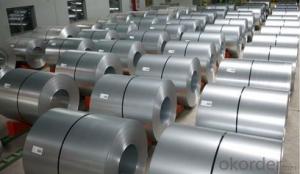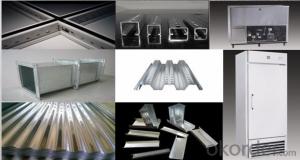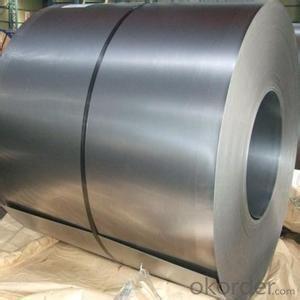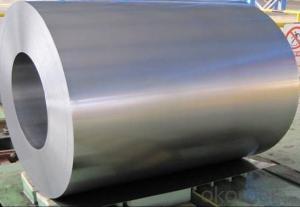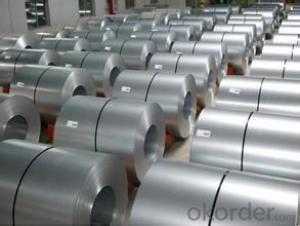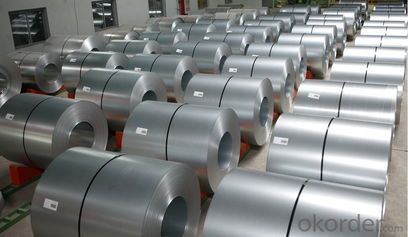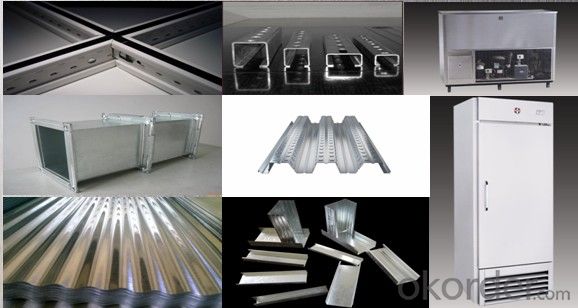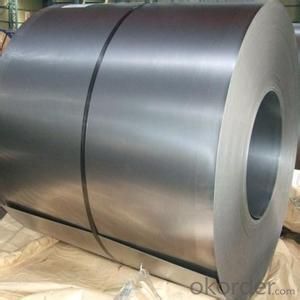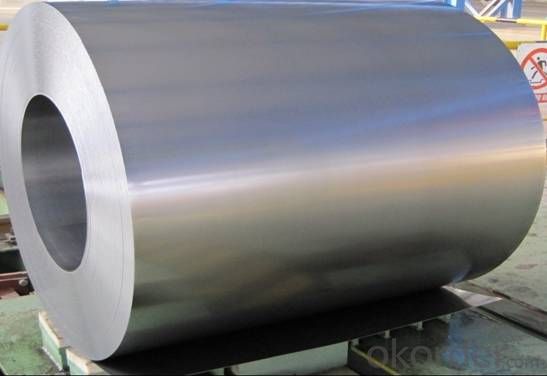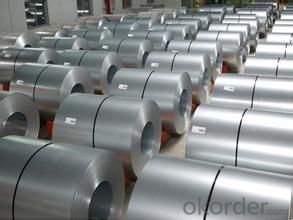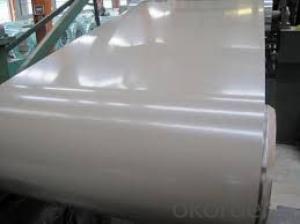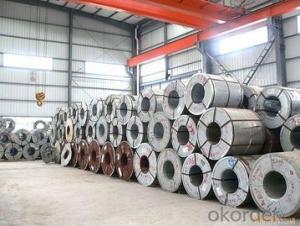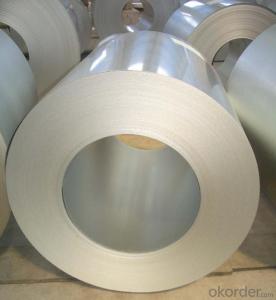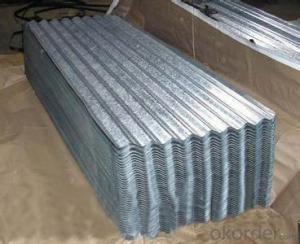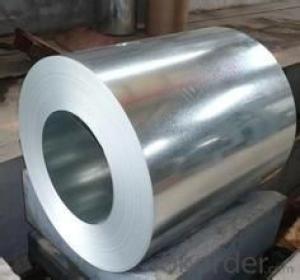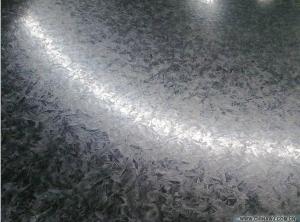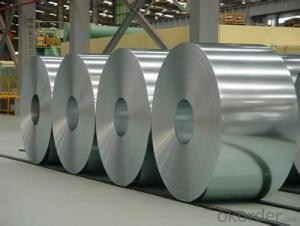Hot-dip Aluzinc Steel Building Roof Walls -the Best Quality
- Loading Port:
- China main port
- Payment Terms:
- TT OR LC
- Min Order Qty:
- 50 m.t.
- Supply Capability:
- 10000 m.t./month
OKorder Service Pledge
OKorder Financial Service
You Might Also Like
Hot-dip Aluzinc Steel Building Roof Walls -the Best Quality
1. Description of the Hot-dip Aluzinc Steel:
Hot-dip aluzinc steel structure is composed of aluminum-zinc alloy, consisting of 55% aluminum, 43% zinc and 2% at 600 ℃ silicon solidification temperature and composition, the entire structure is made of aluminum - iron - silicon - zinc, to form a dense quaternary crystals an alloy.
Hot-dip aluzinc steel has many excellent features: strong corrosion resistance, is three times the pure galvanized sheet; zinc surface with beautiful flowers, can be used as a building outside board.
Applications of hot-dip aluzinc steel:
1)Building: roof, walls, garages, soundproof walls, pipes and modular housing.
2)Automotive: muffler, exhaust pipes, wiper accessories, fuel tank, truck boxes, etc.
3)Appliances: refrigerator back, gas stove, air conditioners, microwave oven, LCD frame, 4)CRT-proof band, LED backlight, electrical cabinets, etc.
5)Farm: barn, sheds, silos, piping and other greenhouse.
6)Other: breaking heat insulation cover, heat exchangers, dryers, warm water, etc.
2.Main Features of the Hot-dip Aluzinc Steel:
• Excellent corrosion resistance
• High temperature oxidation resistance
• High hot reflectance
• Good manufacturability
•Beautiful appearance
•Surface coating
•Cost-effective
3.Hot-dip Aluzinc Steel Images
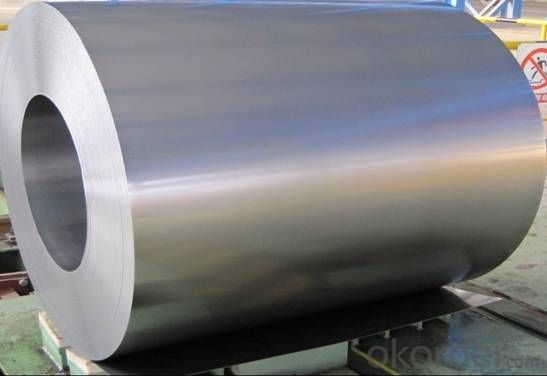
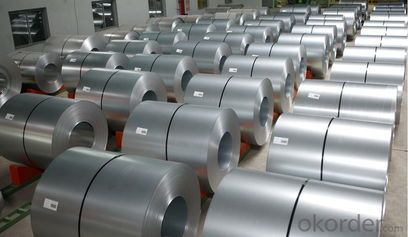
4.Hot-dip Aluzinc Steel Specification
AVAILABLE SPECIFICATION
HOT-DIP ALUZINC STEEL COILS | |
THICKNESS | 0.16mm-3.5mm |
WIDTH | 1250mm MAX |
COATING MASS | 30g/ m2-185 g/ m2 |
SPANGLE | Regular Spangle, Minimized Spangle, Zero Spangle |
SURFACE TREATMENT | Chromated / non-chromated, Oiled / non-oiled, Anti Finger Print |
COIL INNER DIAMETER | 508mm or 610mm |
HOT-DIP ALUZINC STEEL COILS | |||
COMMERCIAL QUALITY | ASTM A792M-06a | EN10327-2004 | JIS G 3321:2010 |
STRUCTURE STEEL | SS GRADE 230 SS GRADE 255 SS GRADE 275 SS GRADE 340 SS GRADE 550 | S220GD+AZ S250GD+AZ S280GD+AZ S320GD+AZ S350GD+AZ S550GD+AZ | SGLC400 SGLC440 SGLC490 SGLC570 |
5.FAQ of Hot-dip Aluzinc Steel
We have organized several common questions for our clients,may help you sincerely:
1.What advantages does your company have?
Cement : Annual capacity of 400 million tons, No. 1 in the world
Fiberglass: Annual capacity of 1 million tons fiberglass, No. 1 in the world.
Composite Materials — Carbon Fiber: Annual capacity of 10,000 tons PAN precursor and 4,000 tons carbon fiber, No. 1 in China
Composite Materials — Rotor Blade: Annual production capacity of 15,000 pieces, No.1 in China, Top3 worldwide
Glass: CNBM owns about 20 modern float glass product`ion lines, With annual capacity of 10 million square meters glass.
Light Weight Building Materials: Annual capacity of 1.65 billion square meters of gypsum board, No. 1 in the world.
Commercial concrete: Annual capacity of 0.35 billion cubic meters, No. 1 in the world.
Refractory Material: Annual capacity of 40,000 tons casting refractory, No.1 in the world.
2.What advantages do your products have?
Firstly, our base material is of high quality, Their performance is in smooth and flat surface,no edge wave ,good flexibility.
Secondly, high quality zinc ingoats, 97.5% zinc,1.5% silicon,1% others, the same zinc coating measured by metal coating thickness or by zinc weight
Thirdly, high precision: Tolerance strictly according to ASTM or JISG standard even more rigid.
We have full stes of testing equipment(for t best, cupule,chromatism,salt spray resistance, etc) and professional engineers.
- Q: Can steel coils be welded together?
- Indeed, it is possible to weld steel coils together. The practice of welding is widely employed in the fusion of metals, including steel coils. It entails the melting of the coil edges and their subsequent amalgamation with a filler material. This procedure generates a sturdy and long-lasting bond between the coils, enabling their unification into a singular entity. The act of welding steel coils together is frequently carried out across a range of industries, such as manufacturing, construction, and automotive, in order to fabricate larger structures or components. However, it is crucial to adhere to proper welding techniques and implement stringent quality control measures to guarantee the integrity and potency of the weld joint.
- Q: How are steel coils used in the manufacturing of shipping containers?
- Steel coils are used in the manufacturing of shipping containers to provide strength, durability, and structural integrity. These coils are processed and shaped into the necessary components, such as walls, floors, and roofs, which are then assembled to create a sturdy container. The steel coils also allow for easy transportation and stacking of the containers, ensuring safe and efficient shipping of goods worldwide.
- Q: What are the different methods of galvanizing steel coils?
- There are three main methods of galvanizing steel coils: hot-dip galvanizing, electro-galvanizing, and continuous galvanizing. Hot-dip galvanizing involves immersing the steel coil in a bath of molten zinc, providing a thick and durable coating. Electro-galvanizing uses an electrical current to deposit a thin layer of zinc onto the steel surface. Continuous galvanizing is a process where the steel coil is continuously passed through a series of zinc baths, resulting in a uniform coating.
- Q: Can steel coils be cut or trimmed after delivery?
- Yes, steel coils can be cut or trimmed after delivery using various cutting methods such as shearing, slitting, or laser cutting, depending on the desired specifications and requirements.
- Q: What are the dimensions of steel coils used in automotive component manufacturing?
- The dimensions of steel coils used in automotive component manufacturing can vary depending on the specific requirements of each component. However, standard dimensions for steel coils used in this industry typically range from 0.5 to 3 millimeters in thickness and 600 to 2,000 millimeters in width. The weight of these coils can also vary, but they typically range from 2 to 25 metric tons. These dimensions are chosen to ensure that the coils can be easily processed and transformed into the necessary automotive components, while also meeting the required strength and durability standards for use in vehicles.
- Q: I have a bottle like this* Can u make hot chocolate in it. Can i heat it.I wanna take hot Chocolate to school
- Stainless okorder /... on Hot Drink in Stainless Steel Water Bottle.
- Q: i have noticed in guns, and artillery the shell casings are always made out of brass. brass is expensive, weaker and dosnt look as good as steel. so why use it for casings? i am aware some of the case must be deformed. but just a small brass percussion cap could be used just for that and steel for the rest. whats going on?
- Brass has a natural lubricity that makes easier to extract after firing. It also can easily be resized for reloading. Steel offers neither of these properties. It cannot be reloaded so is good for only one single use. Brass has simply shown, by virtue of its metallic characteristics, to be the best choice for manufacturing cartridges.
- Q: How are steel coils protected from humidity?
- Steel coils are typically protected from humidity through a process called galvanization, where a layer of zinc or another protective coating is applied to the surface of the steel. This coating acts as a barrier, preventing moisture from coming into direct contact with the steel and minimizing the risk of corrosion. Additionally, steel coils are often stored in dry, enclosed spaces or wrapped with moisture-resistant materials such as plastic or wax paper to further protect them from humidity.
- Q: Explain why a steel nail sinks but a steel ship floats.
- surface area of the ship against the water is much greater than the nail.
- Q: Can steel coils be painted or coated?
- Yes, steel coils can be painted or coated. Painting or coating steel coils is a common practice to enhance their appearance, protect them from corrosion, and improve their durability. The paint or coating helps to create a barrier between the steel surface and the environment, preventing rust and extending the lifespan of the coils. Various methods and materials can be used for painting or coating steel coils, depending on the specific requirements and intended application.
Send your message to us
Hot-dip Aluzinc Steel Building Roof Walls -the Best Quality
- Loading Port:
- China main port
- Payment Terms:
- TT OR LC
- Min Order Qty:
- 50 m.t.
- Supply Capability:
- 10000 m.t./month
OKorder Service Pledge
OKorder Financial Service
Similar products
Hot products
Hot Searches
Related keywords
